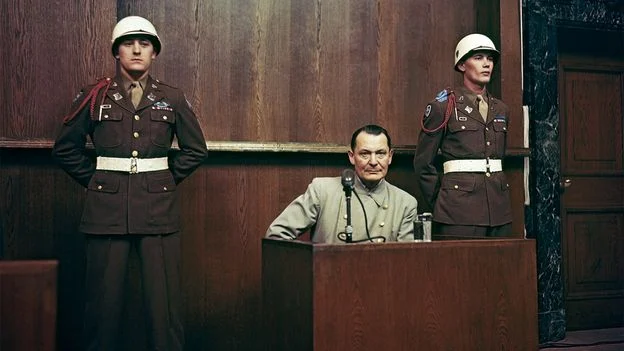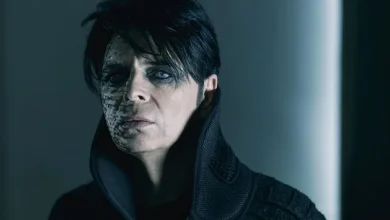‘This history mustn’t be forgotten’: The real story behind the Nuremberg trials

The doctor’s own ambition was to identify among the Nazis a shared psychosis or particular derangement, because only that, he believed, could account for their monstrous acts. Yet after intense study, Kelley conceded the men were fundamentally opportunists who had grabbed the chance to exercise power and exploit others. “And he concluded there have always been people like this, although the atrocities they commit are much smaller,” says El-Hai.
Rami Malek, in the role of Kelley, and Russell Crowe, playing Göring, have excellent onscreen chemistry. The audience watches the pair converse, jousting and joking, and coming to trust each other. Göring enlists Kelley’s aid to communicate with his wife and daughter, and the doctor, defying protocol, hand-delivers letters to them for Göring.
During one exchange with Kelley, included in the book but not the film, Göring tells the doctor he fears that he and his wife will both soon be dead, and asks the doctor to adopt their seven-year-old daughter Edda, and raise her in America. While Kelley did not record how exactly he replied, El-Hai wrote: “This astonishing request – a sign of Göring’s respect for Kelley – moved the psychiatrist, who knew how much Edda meant to her father.”
The more conventional second half of Nuremberg takes place in court. In testimony closely adhering to the actual transcripts, Crowe, as Göring, launches a vigorous defence laced with self-effacing repartee, and manages to wrong-foot the US chief prosecutor, Robert H Jackson (played by Michael Shannon). The British lawyer Sir David Maxwell-Fyfe (Richard E Grant) has greater success by using incriminating documents to establish the former Reichsmarschall’s direct responsibility for the persecution of Jews. Shocking film shot by the Allied soldiers who liberated the concentration camps is then screened, as actually happened at Nuremberg. Göring looks away as emaciated figures and piles of bodies appear in flickering black-and-white.
True scale of the crimes
The graphic film of the camps was a turning point in the trial, bringing the horror of the Holocaust directly into the courtroom. “Eisenhower had insisted that the camps be filmed,” Dr Thomas Schwartz, professor of history at Vanderbilt University, tells the BBC, speaking of the Supreme Allied Commander in Europe. “And the Russians made films, too. These were extraordinarily effective in conveying the true scale of the crimes.”





